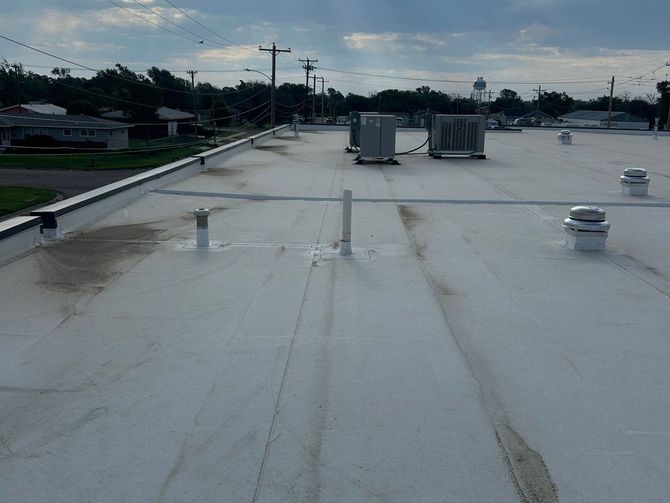Selecting the right industrial roofing system is key to protecting your property and ensuring long-term durability. Whether installing a new roof or maintaining an existing one, knowing your options and their benefits can save you time, money, and stress. Here’s what you need to know about industrial roofing.
Key Considerations for Industrial Roofing Projects
When undertaking an industrial roofing project, there are several factors to account for, given the specific needs of large-scale buildings. Keep these considerations in mind:
- Building Use: The type of building determines roofing needs, whether for heat resistance, weather protection, or soundproofing. Consider the building's use to select the appropriate roofing material.
- Environmental Conditions: Consider your local climate—extreme temperatures, heavy rainfall, or snow can all affect roofing materials. Select a roofing system designed to handle these conditions.
- Budget: While industrial roofing can be costly, finding the right balance between quality and affordability ensures you get the best return on investment.
- Energy Efficiency: Choosing energy-efficient roofing can reduce long-term utility costs. Consider materials that help improve insulation and lower heating and cooling expenses.
Popular Industrial Roof Types: Built-Up, Metal, and Modified Bitumen
Industrial buildings often use specific roofing systems. Below are some of the most common types that provide advantages based on the structure's needs.
Built-Up Roofs (BUR)
Built-up roofing (BUR) is made of multiple layers, usually tar and gravel, offering excellent waterproofing. BUR is durable and well-suited for large industrial roofs, though its installation can be time-consuming.
Metal Roofs
Metal roofing is a popular choice for industrial buildings due to its durability and low maintenance. It’s highly resistant to extreme weather, including heavy snow, rain, and strong winds. Metal roofs are also energy-efficient, as they reflect sunlight, reducing cooling costs. They come in a variety of materials, including steel, aluminum, and copper, to suit different needs.
Modified Bitumen Roofs
Modified bitumen combines asphalt with rubber or plastic polymers, resulting in a flexible and durable roofing solution for low-slope buildings. Its resistance to leaks makes it a reliable choice for industrial structures.
Maintenance Tips to Extend the Life of Your Industrial Roof
Routine maintenance is vital to ensuring your industrial roof lasts longer and avoids expensive repairs. Here’s how to maintain your roof effectively:
- Regular Inspections: Have your roof inspected by professionals at least once a year to catch early signs of damage, like cracks, leaks, or debris buildup.
- Clean Gutters and Drains: Ensure gutters and drains are clear of debris to prevent water buildup, which can lead to roof damage.
- Prompt Repairs: Promptly repairing minor issues helps prevent bigger, more expensive problems from developing.
- Coating and Sealing: Applying coatings and sealants to your roof helps guard against moisture and UV damage, prolonging its lifespan.
Why You Should Hire a Specialized Roofing Contractor for Your Industrial Roof
Hiring a specialized roofing contractor is essential for ensuring your roof is installed correctly and maintained properly. Experts can help you choose materials, manage the project, and provide long-term support.
Final Thoughts: Industrial Roofing for Your Business’s Long-Term Needs
Selecting the right industrial roof is key to safeguarding your property and ensuring it lasts long-term. Understanding your options—BUR, metal, or modified bitumen—will guide your decision. With a specialized contractor, you can ensure optimal installation and maintenance for years of protection.
Looking for a trusted roofing partner for your industrial needs? Reach out to us today for tailored roofing solutions and expert guidance!

#IndustrialRoofing #CommercialRoofing #RoofInstallation #BuiltUpRoof #MetalRoofing #ModifiedBitumen #RoofMaintenance #EnergyEfficientRoofing